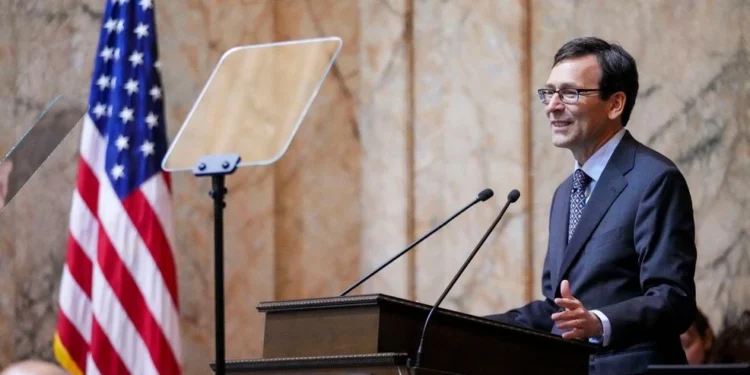Governor Bob Ferguson signed an executive order directing state agencies to explore immigration policy impacts and support for immigrant families, establishing a new Immigration Sub-Cabinet despite ongoing debates about potential conflicts with federal enforcement authority.
The order comes as questions persist about Washington’s 2019 Keep Washington Working Act, which limits state and local cooperation with federal immigration enforcement. Critics argue the state law may conflict with federal immigration authority.
“We don’t worry about what a person’s citizenship status is, we’re not going to use our state resources to enforce federal immigration law because that’s the job of the federal government, and we need our state resources for what they’re supposed to be used for which is the people who live in the state of Washington,” said David Montes of the ACLU of Washington.
Washington GOP Chair Rep. Jim Walsh raised concerns about direct conflicts between state and federal law. “U.S. Attorney General [Pam] Bondi’s argument is the implementation of the Keep Washington Working Act thwarts the enforcement of federal law. In doing so, whether it’s intended or not, this piece of legislation is in conflict with federal law,” Walsh said.
The newly formed Immigration Sub-Cabinet will meet regularly to address immigration-related issues and recommend programs supporting immigrant communities. State officials maintain current laws comply with federal regulations.
Nathan Bays, deputy policy director in the Governor’s Office, defended Washington’s legal framework. “In balancing the relationship between state and federal interests, it both fully complies with federal law but provides meaningful protection at the state level,” Bays said. “Our guiding policy is to follow the law, follow the law in both federal and state law. That is of paramount importance.”
Bays emphasized the state’s position that no conflict exists between state and federal immigration law. “We fully interpret our state law to be fully in compliance with federal law. We don’t see a conflict between federal law and state law in that regard, we believe they’re fully consistent,” he stated.
The Washington Attorney General’s Office noted that similar laws in states like Illinois have withstood legal challenges, reinforcing the state’s belief that Washington’s approach does not violate federal law.
The executive order represents Ferguson’s effort to formalize state-level immigration policy coordination while the Trump administration pursues expanded deportation operations nationally. The Sub-Cabinet will coordinate between agencies on immigration-related matters affecting Washington residents.
The legal debate centers on the Tenth Amendment’s balance between state and federal authority, with Washington officials asserting that limiting state resource use for federal immigration enforcement falls within constitutional boundaries.






